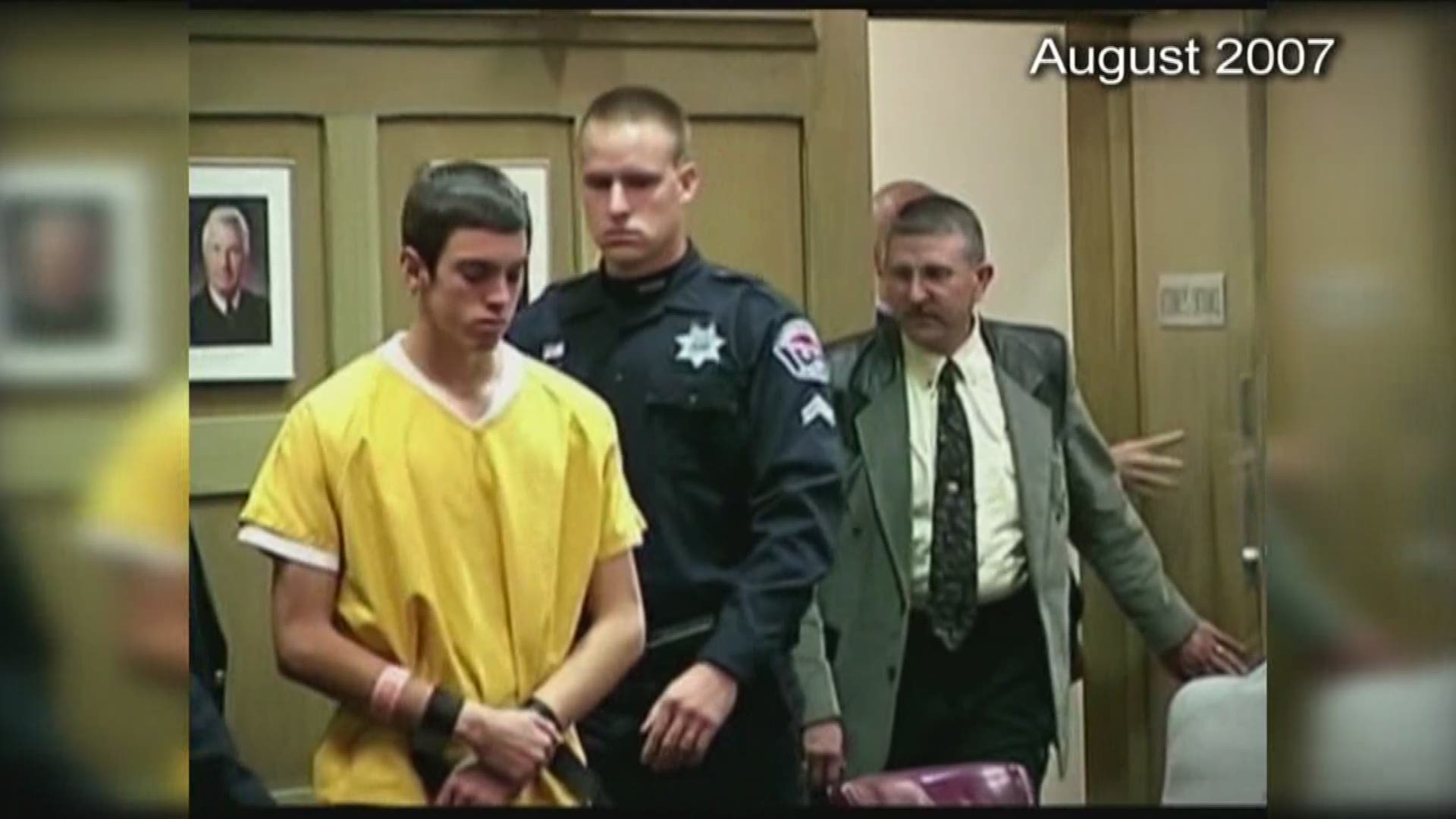Of Idaho's roughly 8,000 inmates, four have a dubious distinction: Ethan Windom, Sarah Johnson, Torey Adamcik and Brian Draper were each sentenced as teens to life in prison without parole for murder.
Sarah Johnson was 16 years old when she was convicted of shooting and killing her parents; Torey Adamcik and Brian Draper, who were 16 years old, when they planned and killed a classmate in 2006; Ethan Windom, who was 16 years old, when he fatally beat and stabbed his mother in 2007.
All four were sentenced to life without parole for their crimes.
"In this case the four juveniles they never get to go in front of the parole board because they don't have a parole eligibility," Idaho defense attorney Dennis Benjamin said. "They just have a slow death sentence in prison, right because they are going to die in prison."
But a series of recent U.S. Supreme Court rulings is calling into question whether fixed life sentences are unconstitutionally cruel and unusual when imposed on juveniles, who are under the age of 18 when they commit the offense.
"If the juvenile has any possibility of being rehabilitated then they're entitled to a sentence where they can show the parole board at some point in the future that they have been rehabilitated," Benjamin said.
Benjamin, who represents both Johnson and Adamcik, tells KTVB a chance at parole doesn't mean his clients or the two other convicted murderers will get our of prison.
"Charles Manson has parole eligibility date. He just never gets parole," Benjamin said.
Idaho doesn't have a standard process for reviewing sentences in light of new Supreme Court rulings.
The Idaho Supreme Court has ruled on three of these four cases. Benjamin says earlier this year Windom was granted a re-sentencing hear. The court has upheld both Johnson's and Draper's sentences. Adamcik is set to appear in front of the Idaho Supreme Court in November.
Going forward, Benjamin says any under-age offenders found guilty of committing a crime, even murder, could have the possibility of getting out of jail one day.
"The judge has to look at the juvenile and say is this a person who can be rehabilitated and if the person can be rehabilitated then they have to have the chance to go in front of the parole board," Benjamin said.
Benjamin says the state should automatically review all four cases in light of the new case law. Sarah Johnson has already lost a petition on the matter to the Idaho Supreme Court, but Benjamin says he plans to appeal her case to the U.S. Supreme Court.
KTVB did reach out to the Idaho Attorney General's Office regarding these four cases and the U.S. Supreme Court's ruling. A spokesperson tells KTVB this touches on pending litigation the Idaho Attorney General's Office is involved with and because of that declined to comment.

